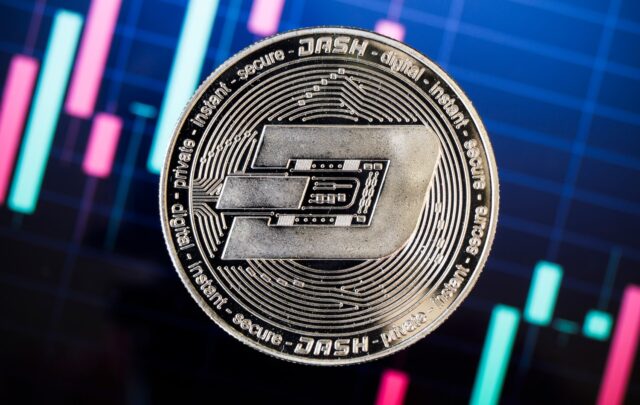
There is a group of cryptocurrency developers and companies that believe Bitcoin will be replaced by other cryptocurrencies. The first reason, as stated in the video below, is that there is too much power in the hands of miners and we need to fix this ASAP.
Another reason why most developers are interested in creating new cryptocurrencies is because they want to improve what Bitcoin has failed to do, such as anonymizing Bitcoin transactions. If you want to learn more you can visit cryptobenelux.com.
About Bitcoin

Bitcoin is a cryptocurrency and worldwide payment system; it is the first decentralized digital currency, as the system works without a central repository or single administrator. The network is peer-to-peer and transactions take place between users directly, without an intermediary. These transactions are verified by network nodes through the use of cryptography and recorded in a public distributed ledger called a blockchain. Bitcoin was invented by an unknown person or group of people under the name Satoshi Nakamoto and released as open-source software in 2009.
About other Cryptocurrencies
1. Ripple

Ripple Labs has created Ripple, which allows for instant, secure and free global financial transactions of any size with no chargebacks. Ripple focuses on providing a real-time gross settlement system (RTGS), currency exchange, and remittance network.
2. Cardano

Cardano can be described as a third-generation cryptocurrency that is designed to address some of the issues encountered by Ethereum or Bitcoin. Its goal is to utilize blockchain technology to tackle real-world problems. And it employs a research-driven approach to developing. The well-known digital currency is available in fifteen countries across four continents. One aspect that sets it apart in comparison to other crypto currencies is its involvement in Africa. It has, for instance, collaborated together with the Ministry of Education in Ethiopia to save all academic data of five millions students in its Blockchain. Fake academic credentials are an issue in Ethiopia and hinder students from being allowed to go abroad to study or work. This pilot project has the potential to alter lives.
3. Monero
Monero differentiates itself from other currencies through privacy. One of the strengths of Monero’s privacy technology is its use of ring signatures which allows a sender to mix his/her account key with a group key in order to produce a one-time address from which funds can be sent or received without either party revealing the actual account number from which the transaction was sent/received.
4. Dash

Dash aims to be as user-friendly as possible by providing enhanced privacy through master node network and advanced features such as instant transaction confirmation, double spend protection and elimination of the mining process.
5. Etherum

Ethereum can be described as the second-largest cryptocurrency according to market capitalization. And at the right moment, it’s most likely to take over Bitcoin. Ethereum was one of the first ones to create intelligent contracts. These are small pieces of code that reside within the blockchain. Smart contracts can be a game-changer. They are the reason behind many of the most significant developments, such as the decentralized financial system and the non-fungible currency (NFTs) — that have fueled the rapid rise in cryptocurrency over the last few years.
The tiny bits of code that self-execute enable you to create an agreement without having to involve a third person. For instance, farmers might take out an insurance policy to protect against extreme weather conditions and the policy would automatically payout when those conditions were fulfilled.
6. NXT
NXT is a 100% proof-of-stake (PoS) currency that also uses the SHA-256 algorithm like Bitcoin does; however, it allows users to secure the network with as low as 1% of total stake (nxtcoins). The consensus NXT system claims to be more advanced than older PoS systems because it doesn’t depend on miners for security and all coins can be used for securing transactions.
7. Dogecoin

Dogecoin is one of the most famous cryptocurrencies that has nothing to do with serious business. This cryptocurrency was created as a joke and is now worth a $100 million market cap at press time. Dogecoin is based on Litecoin and it brings little improvements, such as faster confirmations and better security. It won’t probably replace Bitcoin, but it’s great fun.
An article from the MIT Technology Review published in May 2015 sums up this debate:
The problem is that Bitcoin requires a lot of power to process a transaction. This means it’s rather costly and not really feasible for everyday use. Bitcoin developers have been hard at work trying to fix these problems so that Bitcoin can be used on a larger scale. But other developers think there’s something inherently wrong with Bitcoin, and they believe cryptocurrencies should strive towards decentralization instead of centralization by using alternative forms of blockchain technology.

This second group includes Charlie Lee, the creator of Litecoin, who points out that Satoshi Nakamoto, Bitcoin’s anonymous creator himself recognized many years ago that this flaw would turn out to be disastrous. Nakamoto proposed a solution but it was never implemented:
“The development team believes two of the six principles Satoshi outlined should also apply to all cryptocurrencies: decentralization and openness. The developers believe that the current centralization of mining power in Bitcoin is contrary to those principles.”

Cryptocurrencies such as Primecoin, Monero, Cardano, Peercoin, and Ripple are just some of the few cryptocurrencies that could replace Bitcoin as we know it today. All these currencies have very intriguing new features implemented into their blockchain technology which could make them extremely popular in the next few years.It was the first cryptocurrency to ever exist, which makes it an original in the world of cryptocurrencies.
As you can see, there are many differences between these cryptocurrencies, but they all aim to solve some of the problems that old-fashioned Bitcoins fail to deliver. The main question is – do any of them have what it takes to replace Bitcoins? Only time will tell…









